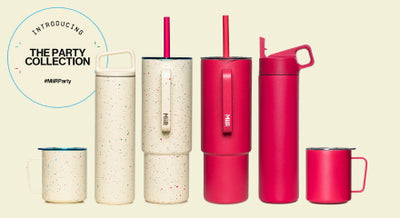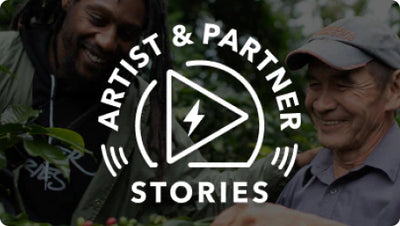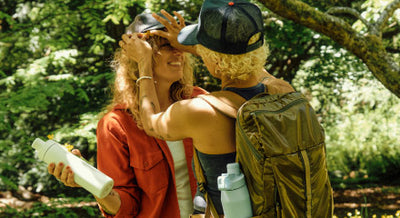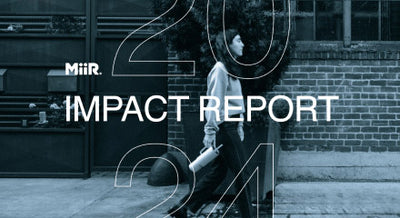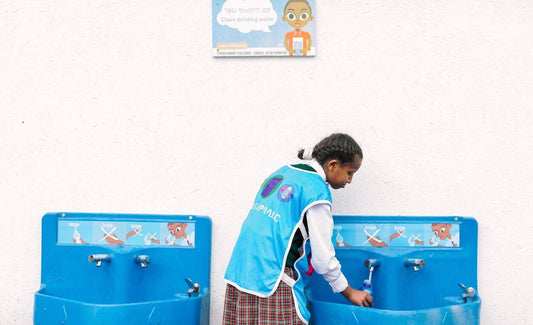Our exciting new partnership with Kula is layered with themes of entrepreneurship, coffee, climate and the empowerment of women for a better future.
Kula eradicates poverty through the development of entrepreneurs. Together MiiR x Kula aim to empower 50 women fellows enrolled at Kula’s Liddy Women’s Center in the Kayonza District of Rwanda. As artisan fellows, these women have the opportunity to either focus on the tailoring or weaving industry.
Tailoring training teaches fellows the necessary skills to pursue a professional level of tailoring. Coupled with business plan training and cooperative education, graduates will be prepared to start their own professional cooperatives and continue to complete orders for individuals and institutions after graduating.
Similarly, weaving participants learn essential skills to be adept in basket and bowl weaving, crocheting, and other local decorative and functional items. Through agreements with local and international markets, items will be sold and students will be able to learn budgeting, saving and forecasting. Graduates will be equipped with a mastery in at least five different handicraft skills and a workable business plan to continue their enterprise post program.
The women can also engage in agribusiness training alongside their industry training lessons, equipping them to run a profitable business growing and selling fruits and vegetables, as well as better cultivate agriculture in their homes. Eventually, most women will be able to use their agribusiness to not only provide food for themselves and their families, but also further fund their artisan businesses.
Kula will also provide Female Reproductive Health, Hygiene and Family Nutrition training to the women and girls in the Women’s Centers. All trainings will be accompanied by one-on-one mentorship.
The Partner
Kula believes charity will not eradicate poverty, business will. Kula develops entrepreneurs in Rwanda through a 15-month fellowship that provides industry training, life & leadership skills and business investment in coffee training, artisan goods and agribusiness. This development empowers fellows to build profitable businesses, raise healthy families and send their children to school.
The Approach
Step one: Relationship building
Kula conducts extensive baseline assessments with its cooperatives and spends relational time with the fellows and their families to know them both quantitatively and qualitatively.
Step two: Industry training
Kula provides consistent and in-depth industry training, support, and follow-up to each fellow in their specific industry, be it coffee farming, artisan goods and/or agribusiness.
Step three: Life and leadership skills
Kula conducts intensive training and one-on-one mentorship to our fellows and their families in areas of household visioning, financial planning, business leadership and family health and nutrition.
Step four: Business investment
Kula invests in groups or individuals who have completed business training and submitted a business plan, equipping our fellows to improve their current business or launch new ones.
Step five: Impact measurement
Kula measures qualitative and quantitative data to monitor and evaluate the impact of their work. They then determine the best way to amend the fellowship to support each person toward empowerment.
Financial Breakdown
| PROGRAM EXPENSES | COST |
| Women's Center Materials | $8,000 |
| Women's Center Instructors & Management | $10,500 |
| Women's Center Training | $2,500 |
| Sewing Machines | $4,000 |
| Mentorship | $7,500 |
| Personal Development Trainings | $7,500 |
| Total | $40,000 |
The Impact
In order to assess the impact on the lives of the women and girls that participate, Kula’s Mentorship Team will work together to conduct the Kula Impact Survey. The measurement and evaluation process involves the use of baseline, exit and post program surveys to measure over 100 data points, with key indicators being income increase, savings increase, use of personal budget, increase skill knowledge for artisans, increase in household dietary variance, increase in self-report of capability and self-belief, increase in reports of family decision making, and an articulated vision and business plan.









Operating in its second season under Kula ownership, the Kula Coffee Washing Station, locally known as Ntango, saw incredible growth in every aspect in 2021. After an initial season that was muted by low harvest numbers, the COVID-19 pandemic, and a natural learning curve, the Ntango team applied various tactics to ensure improvement and were assisted by high harvest numbers in the region. Combined with the introduction of the Kula Fellowship Program in the area, Kula’s commitment and collaboration in the area have only increased. Now confident in our ability to produce and sell a growing amount of quality specialty coffee, we are greatly optimistic about the path ahead.

As the 2020 season ended, however, we knew there were many areas that warranted improvement and investments that would reap benefits to both farmers in the region and to the washing station’s success. To begin, we hired an experienced agronomist in June 2020 to serve as Kula Farm Trainer in the region. While giving immediate attention to the coffee farm on Ntango’s property, rejuvenating old trees with the aim of turning the land into a demonstration farm, he also began providing group training to all farmers on topics of best agriculture practices and visiting farmers individually to evaluate the condition of their trees. With the plan of selecting our first official intake into the Kula Fellowship Program in early 2021, our Farm Trainer nevertheless began conducting these open trainings in advance with the goal of building trust with farmers and providing much-needed advice and input as they prepared for the 2021 season to come.
Another action that we were committed to was providing a “second payment" –– or bonus –– to farmers who had provided harvest to the washing station in 2020. At washing stations throughout Rwanda, a minimum price for cherries is set by the government, and any price fluctuation throughout the season is driven by market competition. Beyond that, washing stations are encouraged to provide a bonus payment to farmers after they have sold all their coffee, depending on the profit they have. The bonus is not mandatory, and while not uncommon, it certainly is not ubiquitous. From the beginning of our operations, we have been committed to providing farmers a better payment for their harvest. Outside of any social support and program benefits that we can offer, and which we believe are very helpful to a farmer’s growth, we are convinced that any real long-term success as a coffee farmer needs to begin with being paid well for their work. We distributed bonuses in early February 2021 and were met with enthusiasm and appreciation. The regional government told us that it was one of the largest bonuses ever provided, and it meant a lot to farmers who had heard us talk about valuing their work but were now seeing it in tangible ways.

In our vision to strengthen traceability and data collection –– as well as our system usability for our field team –– we began working with M Cultivo in July 2020 as the washing station’s primary digital platform. M Cultivo offers a wide scope of capabilities and options and ready support. One unique aspect of their system is a communication service that connected to farmers’ profiles, allowing us to send mass SMS announcements and receipts to all the farmers in our system. This proved very valuable throughout the season, as we were able to automatically send a digital record of transactions to farmers’ phones each day, building another layer of trust and transparency to farmers supplying to our washing station.

Finally, the pure hustle of the team at Ntango was perhaps the biggest factor in preparing and ensuring a successful season, and cannot be overstated. In the months leading up to and all throughout harvest, our team spent hours walking to and visiting farms throughout the region, giving tips to farmers and sharing with them the benefits of supplying their cherries to our washing station. Often working 12 hour days, the staff was tireless in pursuing our goal of receiving 300 tonnes of harvest. Their energy, care for farmers and dedication to the grind of the season was doubtlessly key to our success.
By the end of the season, we purchased cherries from 1,164 individual farmers. This was a 121% increase over last year’s total of 526.
Overall, the outlook is very encouraging as we look at the 2021 season and sales and prepare for 2022. Farmers in the Ntango community have benefited greatly from the washing station’s operations and the impact of the Kula program, and we are dedicated to continuing and expanding our efforts to support them well in their work. Our sales have started organically, sustained, and grown, even amidst the COVID challenges of the last 20 months. There are clear areas and opportunities for both product development and sales growth, and we are beginning the process of transitioning roles and developing skills within the organization to meet these. The connections that the business has brought us in the coffee industry –– both within Rwanda and around the globe –– have only strengthened our passion for working alongside farmers, and bringing production stories and transparency to consumers from every step in the supply chain. We anticipate great things ahead and are very motivated to build on this foundation as we grow our product quality, profitability, and ultimately, human impact across Rwanda.



